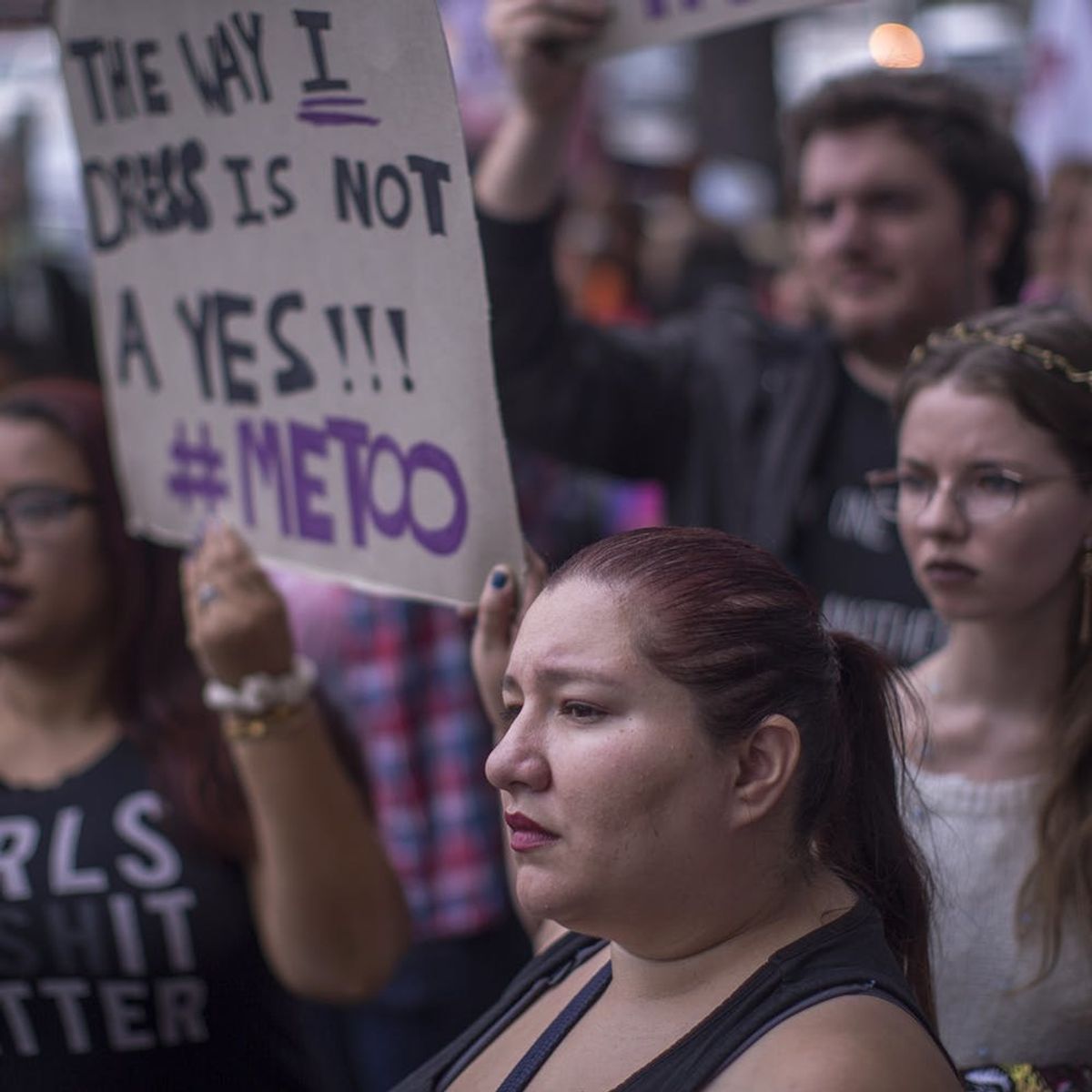Despite some progress, more needs to happen.
Post #MeToo, Employers Still Aren’t Doing Enough to Prevent Workplace Abuse


An honest look at the ways women are taking care of their minds and bodies in 2018.
*
Ever since reporters broke stories about Harvey Weinstein’s terrible history of alleged sexual abuse, there’s been an almost constant stream of news and commentary related to workplace sexual harassment or assault. And while there’s been a lot written and said about the resurgence of #MeToo, a new survey from an unexpected place — the American Psychological Association — shows that this sense of awareness and concern hasn’t necessarily translated to new and better company policies. The repercussions can be dire for employee mental health.
According to Dr. David Ballard, director of the American Psychological Association’s Center for Organizational Excellence, when employees are sexually harassed at work, that abuse often causes or worsens anxiety, depression, and substance abuse and decreases workplace productivity. On an organizational level, workplaces with a culture of harassment are more likely to have a high turnover rate among employees and lower job satisfaction.

Despite this, the APA survey found that most employees have not seen their employers meaningfully address workplace sexual abuse following #MeToo. The survey, which was taken between February 15 and March 1 of this year and includes responses from 1,512 working adults, reveals a troubling lack of action from employers.
According to an APA press release, just 32 percent of people surveyed “said their employer has taken new steps to prevent and address sexual harassment in the workplace.” This means, of course, that nearly 70 percent of employees have not seen any new action from their employers. Breaking it down further, the press release states that the most common action employers have taken was merely reiterating existing sexual harassment policies. Just 10 percent of employees said that their employer had offered “more training or resources related to sexual harassment.”

Ballard says that workplaces need to move away from “one-time, compliance-based trainings” and instead implement “comprehensive, ongoing, interactive trainings” that seek to address big-picture workplace culture. He adds that it’s imperative to show employees how to stick up for one another.
“A lot of times people don’t want to get involved [when they witness harassment],” Ballard says. “So helping people feel empowered to speak up so it becomes a shared responsibility to create a safer, healthier environment” is key to changing workplace culture.
Some businesses have taken action to tighten policies around workplace harassment. Uber, which has made headlines for incidences of sexual harassment both at the company headquarters and between Uber drivers and passengers, is now under new leadership that seems to be taking workplace sexual abuse, and driver/passenger safety, more seriously.
In addition to establishing an advisory committee with input from the National Alliance to End Sexual Violence, National Network to End Domestic Violence, and a Time’s Up Legal Defense Fund co-founder, Uber just announced that it will be ending its policy of forced arbitration for cases of sexual assault or harassment. Forced arbitration is a common condition of employment that prohibits employees from suing the company in the event of a dispute, and experts say it prevents victims from coming forward. The company is also introducing new emergency features to its app.

A few other companies have also ended their forced arbitration policies for instances of sexual abuse. After Uber announced it was changing its forced arbitration policy, Lyft followed suit. Microsoft ended its forced arbitration policy in December of last year.
Ending forced arbitration and being transparent about sexual harassment policies is a good step in the right direction, Ballard says, but he doesn’t think these changes are sufficient. “Policies alone are unlikely to make any lasting change in organizations,” he explains. “You have to do the right kind of training and have real shifts in organizational culture.” Those shifts will have lasting consequences for society and for the health and safety of workers.
What do you think? Tell us on Twitter @BritandCo.
(Images via Getty Images + Sarah Morris/Getty Images)


















